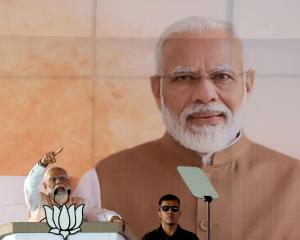In a sport where money is king, the biggest pot of gold is now delivered by pay-per-view television rights, writes Murray Stott.
Boxing is the undisputed champion in generating big revenues from fighting.
The gate model for fights generated golden returns for promoters.
Texan cowboy-made-good through gold, copper and gambling, Tex Richard was widely regarded as the foremost American boxing promoter of all time.
His achievements culminated in his leasing Madison Square Gardens in New York and rebuilding it as a platform for his promotions, which included six-day cycle races, rodeos and carnivals.
Boxing, however, produced the most gold.
And following troubles with local authorities, the bigger fights were forced out of New York City to Jersey City, Philadelphia and Chicago.
One of the sport's most celebrated fights was when Gene Tunney relieved Jack Dempsey of the heavyweight title in 1926, drawing 120,700 spectators.
By the time Las Vegas became the epicentre for big title fights, gates averaged betwixt 10,000 and 14,000 paid attendees, yielding on average $14 million per fight.
When Donald J. Trump moved into the casino business in Atlantic City, he cited hosting title fights as an ameliorator to the bottom line . . .
He was right on the money.
He invited Hollywood A-listers to his fights; Don Johnson, Barbara Streisand, Jack Nicholson, Kirk Douglas and Madonna all showed up at these Trump extravaganzas, which were beamed worldwide via television.
Atlantic City was heralded as America's new pro-boxing capital, courtesy of Mr Trump's foresight and genius in delivery.
The global attraction and powerful branding of hosting title fights was also evidenced during legendary boxer and showman the late Muhammad Ali's glory days, by virtue of The Rumble in the Jungle and Thriller in Manila, whereby governments had coughed up gold for hosting rights to these title fights, in return for the global focus they delivered.
Today, however, the biggest pot of gold in the fight game is delivered by PPV (pay-per-view) television rights.
Although invented back in 1951, this fistic gold producer came into play courtesy of digital convergence of today's mass saturation of host internet platforms.
The HBO Sports president labelled pay-per-view "the biggest economic issue in boxing''.
The two largest pots of gold PPV producers reported are Floyd "Money'' Mayweather having generated 14 million buys and $US943 million ($NZ1.33 billion) in revenue.
And in second place, Oscar De La Hoya has sold over 12 million units, producing $US612 million in domestic television receipts.
Clearly, PPV revenues far exceed that of gates.
According to the Nevada State Athletic Commission, Mayweather v De la Hoya had 15,432 paid gate at MGM producing $US18 million in sales gold, compared to 2.4 million PPV buys producing revenues in the hundreds on millions of dollars.
PPV appears the logical focus for local boxing promoters Duco Events; having cut their teeth with celebrity raves, now progressing to promote the 9s and becoming fight promoters for rising boxing star Joseph Parker.
However, when they discovered they had been ripped off, on their latest fight, with tens of thousands of alleged illegal downloads streamed over the internet, estimated to be worth over $1 million, they came out fighting for lost gold.
While today's digital wizardry creates the platforms for bigger pots of PPV gold, it can also provide the means for revenue erosion via illegal online streaming and dissemination via the internet.
The notion of them mounting effective legal action against each and every alleged illegal downloader could prove something of a rush for fool's gold.
One reporter likened it to trying to catch "mist''; and at, say, $5000 to $10,000 to action each offender for a $50 fee, could prove nonsensically uneconomic.
Undisputed boxing aficionado Sir Robert Jones, who was the first to discover Joseph Parker's boxing potential and put him on the payroll to gain international bouts on the way up ... has cautioned that Joseph Parker is nowhere near ready for the top echelons of world boxing; he also declared that the IBF ranking title in sight is farcical.
And that pro-boxing has become a disgraceful circus comprised largely of "flimflam created by TV companies and opportunists'', obviously on a gold rush!
An old Dunedin mate, Roger Donaldson, now a retired Australian boxing referee, concurs entirely with Sir Robert, but points out that former Dunedin boxing silver medallist Kevin Barry, Parker's mentor and trainer (now Las Vegas-based, where there is no income tax for residents), along with with Duco Events, is treating the local market to events that they would not otherwise get; thus, giving back to local boxing.
Duco Event's ambivalence over lost PPV gold, and their failure to secure trademark protection for either themselves or Joseph Parker, could suggest that they also are nowhere near ready for high-level boxing promotion, particularly when we consider legends like Ali, Tyson, Mayweather (43 trademarks), De La Hoya, Holyfield and Lennox Lewis all have multiple trademarks in the US across a wide range of market sectors.
Has it not yet occurred to Duco Events that the exceptional talent of Joseph Parker; who is not your usual archetypal boxer, given he plays piano for relaxation and has Justice Minister Judith Collins for an aunty, could, once undisputed champion, be asked to use his brand name to sell anything from suits and SUVs to garden sheds and beers?
Nobody, as yet, has trademarked his name to secure such potential marketing gold.
- Murray Stott is a trademark agent and sponsorship broker.












